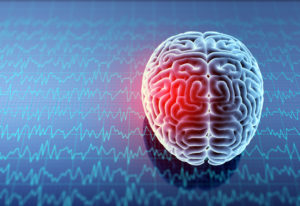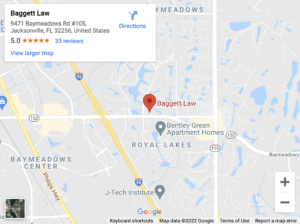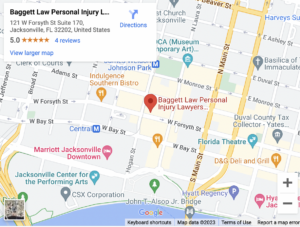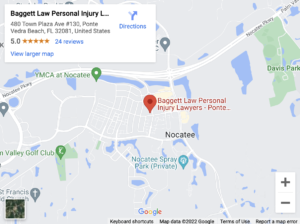
Your brain controls your body by sending signals via nerves and receives information from your body in the same way.
When you suffer nerve damage in an accident, you can experience a range of symptoms that can interfere with your ability to work. In some instances, you might even need help performing daily activities like dressing, driving, and shopping.
Learn about traumatic nerve damage and the accident compensation you can seek for its effects.
What Is the Peripheral Nervous System?

Your nervous system includes the central nervous system (CNS) and peripheral nervous system. The CNS includes your brain and spinal cord. Your brain receives information from your sense organs and controls your body in response to these inputs.
Some of these controls happen without any conscious thought. For example, when your body senses heat, your brain automatically activates your sweat glands. Other controls require intent — when a fly buzzes around your face, you consciously wave your hand to swat it.
The peripheral nervous system helps the CNS control your body. It includes all the nerves that branch from the CNS, including:
Cranial Nerves
Cranial nerves connect your head and face to your brain. Your cranial nerves include the optic, auditory, and other sensory nerves. Your brain also uses cranial nerves to control facial expressions, chew and swallow food, and move your eyes.
Nerve Roots
Your spinal cord runs through your spine. Your spine has 24 vertebrae separated by cushioned discs. The spinal cord branches into a pair of nerve roots at each vertebra. These nerve roots carry the nerve signals for a particular region of the body.
Peripheral Nerves
The nerve roots further branch into peripheral nerves, which run to individual muscles or organs.
What Can Cause Peripheral Nerve Damage?
When doctors refer to nerve damage, they usually mean peripheral nerve damage. Physicians also use the term “peripheral neuropathy” to refer to peripheral nerve damage. This type of damage can occur due to disease or injury.
Nerve cells carry information by signaling each other using electrical charges. Just as wires can’t carry electricity when they become damaged, nerves can’t carry nerve signals unless they’re healthy and intact.
Damaged nerves don’t heal. Doctors can sometimes repair nerve damage through procedures like nerve graft surgery, which replaces a damaged or severed nerve segment. But this surgery is usually only performed on major nerves due to the intricacy of the operation.
Nerve damage happens in a few ways, including:
Traction
Traction, or pulling forces, can stretch nerves. When stretched, nerves can drop signals, causing weakness and even paralysis.
Traction can happen when your body hyperextends. For example, a common birth injury from medical malpractice happens during labor when a doctor damages a baby’s brachial plexus. The brachial plexus is located in the baby’s shoulder. Doctors can stretch it by pulling too hard on a baby’s arm during delivery.
Laceration
Laceration happens when nerves are cut. Severed nerves can’t carry signals from the brain to your body or from your senses to your brain.
A deep laceration in an accident can sever nerves. If you hit your face on your side window during a car accident, you could lacerate the cranial nerves in your face, leading to significant paralysis and disfigurement.
Broken bones can also lacerate nerves. When you break a bone, the fractured ends can become displaced, stretching or slicing nerves in the process.
Compression
Nerves become inflamed when compressed. Inflamed nerves drop signals and misfire. This can cause you to feel pain signals even in body parts you haven’t injured.
Compression can happen in a few ways. When you suffer inflammation in an injured body part, the swelling can compress and damage nearby nerves. A damaged or dislocated body part can also press on a nerve or nerve root. Similarly, a herniated disc can cause radiating pain by pressing on a nerve root near your spine.
What Are the Symptoms of Nerve Damage?
Damaged nerves usually can’t carry sensory or motor signals. Sometimes, they send errant signals.
The effects of nerve damage will depend on the type of nerves affected. Your peripheral nervous system is composed of three types of nerves:
Autonomic Nerves
Your brain uses autonomic nerves to control involuntary functions like respiration and body temperature.
When you suffer autonomic nerve damage, you can experience symptoms such as:
- Cardiac arrhythmia
- Inability to sweat
- Loss of bowel or bladder control
- Constipation
- Sexual dysfunction
Since these symptoms aren’t typically associated with nerve damage, you might not immediately connect them with your accident.
Sensory Nerves
Sensory nerves carry signals from the skin and other sense organs to your brain.
Sensory nerve damage can cause symptoms such as:
- Impaired hearing or vision
- Loss of smell or taste
- Pain
- Numbness
- Tingling
Sensory nerve damage can produce symptoms at a distance from the site of your injury. For example, a nerve injury in your back can result in pain in your legs.
Motor Nerves
Motor nerves help your brain control your muscles.
Damaged motor nerves can cause:
- Paralysis
- Weakness
- Muscle spasms
- Limited range of motion
- Loss of dexterity
Motor nerve damage is often the most noticeable. This type of nerve damage can cause you to limp, struggle to move certain body parts, or limit your facial expressions.
How Can You Get Compensation for Nerve Damage?
You might be entitled to personal injury compensation if you suffer nerve damage in an accident.
To recover compensation, you must prove your injury resulted from someone else’s negligence. If you manage to prove negligence, you’ll be entitled to compensation for your economic and non-economic losses.
Economic damages include the financial costs of your injuries, such as your medical bills and lost income. Non-economic damages cover the intangible damages you suffer, including pain, mental anguish, disability, disfigurement, and diminished quality of life.
Nerve damage can affect your ability to work and care for yourself. In the worst case, you could suffer from chronic pain and other symptoms for the rest of your life. Contact out attorneys from Baggett Law Personal Injury Lawyers for a free consultation to discuss the compensation you can seek for your nerve damage at (904)-396-1100.




